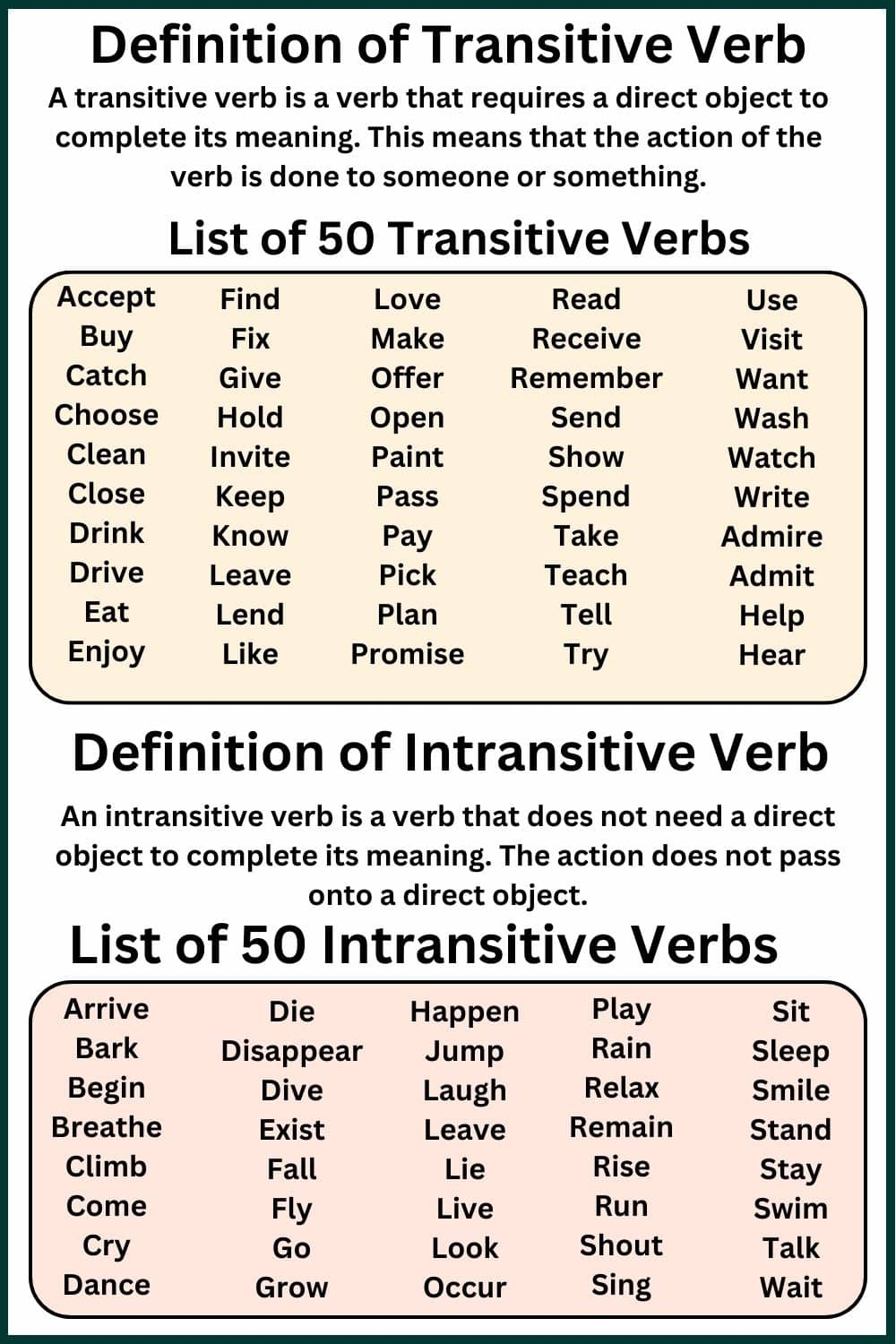Verbs are an essential part of speech in the English language. They are the action words that express what the subject of a sentence is doing. Verbs can be categorized into transitive and intransitive verbs based on whether they require an object to complete their meaning.
Transitive verbs are action verbs that require a direct object to complete their meaning. In a sentence with a transitive verb, the action is performed on the object. For example, in the sentence “She ate the cake,” the verb “ate” is transitive because it requires an object (the cake) to make sense.
Transitive vs Intransitive Verb
In contrast, intransitive verbs do not require a direct object to complete their meaning. These verbs express an action that does not transfer to an object. For example, in the sentence “He sleeps peacefully,” the verb “sleeps” is intransitive because it does not require an object to make sense.
Some verbs can function as both transitive and intransitive depending on how they are used in a sentence. For example, consider the verb “run.” In the sentence “She runs every morning,” “run” is intransitive because it does not require an object. However, in the sentence “She runs a marathon,” “run” is transitive because it requires an object (a marathon).
It is important to pay attention to whether a verb is transitive or intransitive when constructing sentences to ensure clarity and accuracy in communication. Understanding the difference between these two types of verbs can help improve the overall quality of writing and speech.
Transitive and intransitive verbs play a crucial role in sentence structure and grammar. By learning to identify and use them correctly, writers and speakers can enhance the effectiveness of their communication and convey their intended message more clearly.
In conclusion, transitive verbs require a direct object to complete their meaning, while intransitive verbs do not. Both types of verbs serve different purposes in sentence construction and contribute to the overall coherence of written and spoken language. By mastering the use of transitive and intransitive verbs, individuals can improve their language skills and effectively convey their thoughts and ideas.
